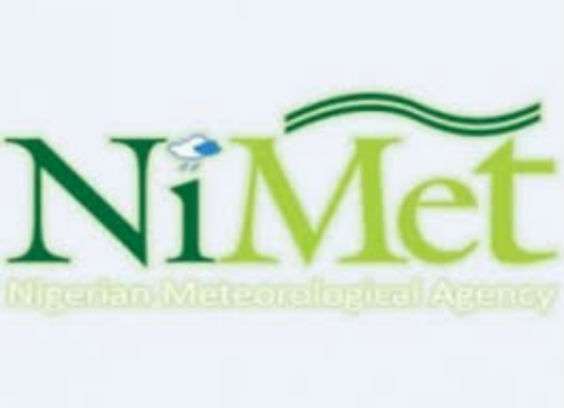For NiMET’s inaccuracy in the last rainfall prediction in Kwara state, UMAR BAYO ABDULWAHAB reports that farmers in agrarian communities of Asa local government area of the state are demanding explanations from the weather and climate agency over what they described as its failed 2025 Seasonal Climate Prediction (SCP) in the state.
At the moment, there is uneasy calm among youth farmers in Asa local government area of Kwara state following a major climate disaster that has destroyed many hectares of farmlands in the agrarian communities.
The affected farmers are not just counting their lossses, they are also demanding explanations from Nigerian Meteorological Agency (NiMet) for what they described as failed 2025 Seasonal Climate Prediction (SCP) of which they said thousands of farmers had relied upon for planting decisions.
A major farming disaster then hit the farming communities following a three months drought periods that occured in the months of June, July and August 2025, being the peak growing season predicted for farmers by the Nigerian Meteorological Agency’s (NiMet).
The drought occasioned by an unprecedented rainfall pattern destroyed several crops on thousands of cultivated hectares of farm land leaving the farmers to count their losses.
Many farmers in the aggregrian community said they had relied on the 2025 Seasonal Climate Prediction (SCP) of the Nigerian Meteorological Agency’s (NiMet) which later turned out to be inaccurate.
According to the farmers, NiMet’s 2025 Seasonal Climate Prediction projected that rainfall in Asa would begin on May 7 and end on November 18, giving farmers nearly 195 days of rainfall to cultivate their crops; the reality was however dramatically different.
After early showers in May, rainfall stopped abruptly in June, it disappeared entirely in July and recorded only two isolated instances in the month of August.
Consistent rains only resumed in September, leaving a three month drought period during the peak growing season.
Blueprint.ng investigation in those communities reveals that this unprecedented rainfall pattern destroyed crops across Asa, wiping out the investments of farmers who had already spent heavily on land preparation, seedlings and fertilisers. Many of them are now counting their losses in what they describe as their worst season in living memory.
Counting the losses
One of the affected farmers, AbdulRazaq Hazmat who has 15 hectares of mixed crops farm got his crops destroyed completely.
He said, “I also have over 15 hectares of farm there with mixed crops like beans, maize, pepper, tomato , watermelon, cucumber
All my cucumber, watermelon and beans got destroyed 100%. The maize is 70% gone too,” he lamented.
Kingsley Ugochukwu, an Igbo man who could not hold back his tears as he count his losses, said all his life savings and money sourced from different means were investment into the farm project.
Mr Kamaldeen Babasiga with over five hectares of farm land destroyed said the Kwara State House of Assembly owes citizens a duty to demand explanations from NiMET.
He urged lawmakers to summon both the Kwara State Ministry of Agriculture and NiMet Ilorin Office over the agency’s inaccurate projections.
“While NiMet is a federal agency, it maintains a station here in Ilorin. The Kwara State House of Assembly should not remain silent; it should invite them to explain why such a disastrous forecast was issued,” he said.
Babasiga further called on the Ntional Assembly to conduct a broader probe into NiMet’s processes to ensure that such a disastrous failure never occurs again.
For Abdullateef Babafila, manager of Kwara Elite Farm cluster spanning over 10 hectares of maize farm, the experience for him is shocking.
Also affected are Muhammed Kola (beans farmer), Lukman Balogun- (rice farmer) with over 10 hecters and Abubakar Olanrewaju, a multi crop farmers with beans, maize and casava of over 15 hectares all crying for help.
Right activist makes case for affected farmers
Supporting the farmer’s position, a civil right activist Dr Ibrahim Kuranga stressed that the failed projection cannot be dismissed as a natural error.
According to him, an agency that claims 85% accuracy cannot afford to miss a major three-month drought predicted to be the peak of the rainy season.
“This is not a matter of chance. It shows something is fundamentally wrong somewhere. NiMet must take responsibility and use this as an opportunity to improve its system,” Kuranga argued.
Speaking in the same vein, Alfa Abdulateef Asileke called on government to provide urgent relief to victims of the agricultural disaster, warning that leaving such a tragedy unattended to would deepen the suffering of farmers and their families.
KMC calls for probe, seeks relief package
Disturbed by the situation, a leading pro-democracy and civic advocacy group, Kwara Must Change (KMC) called on both the National Assembly and Kwara State House of Assembly to investigate the failed 2025 weather forecast by NiMet, which has led to widespread agricultural losses across the state and beyond.
KMC emphasised that accountability is necessary not only to address immediate losses but also to rebuild public trust in NiMet’s forecasts, which farmers across Nigeria rely on to make critical decisions.
Reacting to the situation further, the group described the 2025 NiMeT forecast as a huge failure with devastating consequences for food security, rural livelihoods and farmers confidence.
KMC, which monitors governance and social development in Kwara, expressed alarm at the scale of devastation, accusing NiMet of undermining the very farmers it was meant to support.
According to KMC convener, Abdulrazaq Hamzat, the forecasting failure goes beyond scientific error and borders on policy negligence.
“NiMet’s failure to capture the critical three month cessation of rain between June and August is not just a technical oversight, but a disaster of national importance. Agriculture is the lifeline of Kwara’s rural economy and when institutions fail at such a critical point, the consequences are far-reaching,” Hamzat stated.
The group demanded an urgent explanation from both NiMet and the federal government, insisting that farmers deserve accountability and corrective measures to prevent a repeat of the crisis.
May lead to food crisis
To cushion the effects of the climate change on the affected farmers who have invested huge resources into their farming, KMC called on the state government to provide immediate relief packages for affected farmers in Asa, warning that food shortages and worsening poverty could result, if support is delayed.
In addition, Kwara Must Change advocated the establishment of localised weather monitoring systems across the state to complement national forecasts, arguing that grassroots data could improve reliability and restore farmers confidence.
“This is a wake up call. If national forecasts continue to fail, farmers would either abandon them or abandon farming altogether. Both outcomes are disastrous for our economy and food security,” KMC warned.
As Kwara farmers struggle to recover, agricultural experts are also questioning whether Nigeria’s climate forecasting system is adequately equipped to handle the fast- changing realities of climate variability, especially in rain- fed farming communities.








